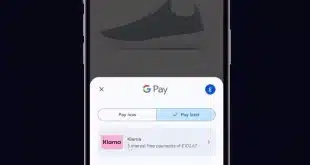With consumers and businesses flocking to online commerce, companies of all sizes are reinforcing their technology for accepting transactions and rating them for risk. The latest example is the giant credit-reporting company Equifax Inc., which on Friday said it is paying $640 million to buy Kount Inc., a 14-year-old Boise, Idaho company specializing in online authentication and identity services.
For Equifax, the deal makes sense as a means to build its strengths in e-commerce, observers say. “It … launches Equifax into a new market for them—they have never played in e-commerce in any significant way, and as we all know the e-commerce fraud-mitigation space is growing rapidly,” says Julie Conroy, research director at Aite Group, a Boston-based research firm.
While Equifax is widely known as a credit-reporting giant, its assets in data collection and analysis will play a big role in helping a wide spectrum of firms control risk, the company said. The key is the ability to confidently identify users in real time, an asset the Kount deal brings.

“Whether you’re a bank, e-commerce provider, or a car dealer, today’s environment demands that consumers have the same—if not better—experience on their digital platform as they do on a major e-commerce retailer’s site,” said Sid Singh, president of Atlanta-based Equifax’s United States Information Solutions (USIS) unit, in a statement. “We are enabling businesses across industries to establish strong digital identity trust behind every interaction while facilitating new forms of online engagement with current and prospective customers.” USIS is taking over the Kount business.
Conroy sees credit bureaus playing a larger role in confirming online identities, particularly as the coronavirus pandemic continues to ravage businesses and drive consumers to online channels, where personal identity is harder to establish and the risk of fraud is sharply higher. “Most notably, this [Kount acquisition] gives Equifax a robust digital-identity asset to pair with their [personally identifiable information] data,” she notes.
In this sense, she adds, Kount brings to Equifax capabilities that parallel those acquired in deals by rival data firms. She points to the $817-million acquisition of ThreatMetrix Inc. by LexisNexis Risk Solutions in 2018, as well as the deal TransUnion made for iovation Inc. in the same year. With respect to fraud protection in online commerce specifically, two key components for Equifax will be Kount Command, aimed at e-commerce fraud prevention, and Kount Control, used for prevention of account takeovers.
But Equifax has stumbled in the recent past in its efforts to protect data. The company has only recently recovered from a scandal related to a 2017 data breach that exposed sensitive data on 148 million files. The company ended up paying penalties totaling $671 million as part of an agreement to settle multidistrict class-action litigation and probes by the Federal Trade Commission, the Consumer Financial Protection Bureau, the New York Department of Financial Services, and attorneys general for 48 states, the District of Columbia, and Puerto Rico. In June 2018, Equifax entered into a consent order with eight states that mandated it improve its data-protection methods.
Besides helping Equifax leverage its data for fraud prevention, the deal will expand Kount’s reach to international markets, Equifax says. Kount employees will stay in Boise. The agreement, subject to customary closing conditions and regulatory review, is expected to close by the end of March.





